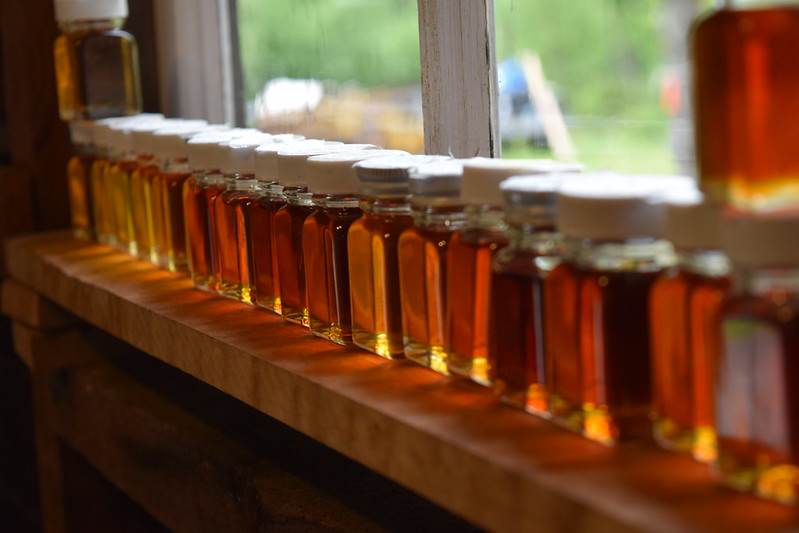Search Results
Results for: '-'

Like people, plants have strong mechanisms to prevent the spread of microorganisms within their tissues. Trees are capable of "walling off" wounds to prevent infections from spreading throughout the tree. This healing process also slows, and event...

Certified organic maple syrup is produced by many Vermont maple producers and generally commands a higher price in the marketplace. In order to legally market your syrup as "organic" an approved third-party certifier such as Vermont Organic Farmer...

The law is very clear on what can be sold as pure maple syrup; only "the liquid derived by concentration and heat treatment of the sap of the maple tree". No processing that "adds or removes naturally occurring soluble materials" is allowed. This ...

There are four grades of pure maple syrup; Golden Color/Delicate Taste, Amber Color/Rich Taste, Dark Color/Robust Taste and Very Dark Color/Strong Taste. Each grade has a range in color as defined by its light transmittance. Knowing the color of p...

As late summer progresses so-called late-season defoliators are beginning to become visible in Vermont woods. Two such insects are maple leaf cutter and maple trumpet skeletonizer. The first report of damage from maple leaf cutter was in 1911 when...

Gardeners know that earthworms can be beneficial for growing vegetables and flowers by helping with soil aeration and producing fertilizer through their castings. Sugar makers may not know that earthworms and relatively newer invaders the so-calle...